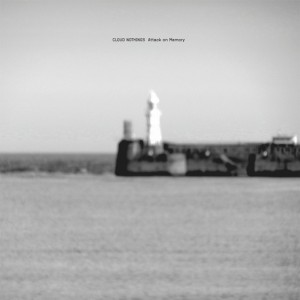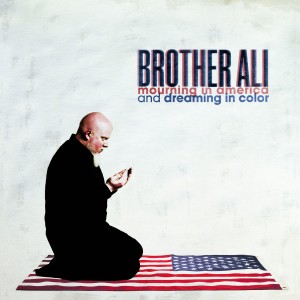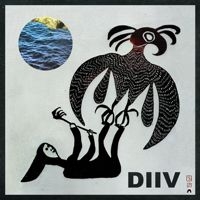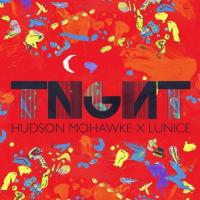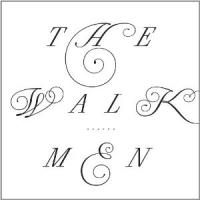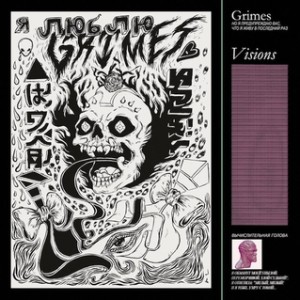Three and a half years ago, I decided to take the plunge into writing about music by starting my own blog (natch). While it was fun putting in my two cents about the day’s music news, my favorite thing to write was record reviews, and nothing made me happier than compiling my favorite albums of the year and writing blurbs for every one of them (usually around 35) for friends, family, and (hopefully) future employers to enjoy. It was a labor of love that I unfortunately did not have the time for this year. However, once I started writing the blurbs for this piece, I could not get myself out of writing in the manner that I had conducted my year-end lists over at Flipside Sounds (which hasn’t been updated since my Top 35 Albums of 2011 list last year). Seeing that was the case, I decided to count down my albums like I have done since I started ranking in 2010, and it is my hope that you enjoy reading this feature as much as I had fun writing it.
One album that I kept returning to this year was the long awaited debut of Orlando Higginbottom’s Totally Enormous Extinct Dinosaurs project. After spending the last few years refining a sound that anyone familiar with the recent resurgence of UK rave/dance movement could appreciate, Trouble sees the young producer and songwriter making some of the most compulsively listenable songs of 2012. Tracks like “Garden,” “Household Goods” and “Tapes & Money” were mainstays on my playlists this year, as Higginbottom’s pop sensibilities and passive-aggressive laments on love resulted in songs that were affecting, easily relatable, and a hell of a lot of fun to listen to. It will be extremely interesting to see where Higginbottom takes his sound from here, but for the time being Trouble is an excellent electro-pop album that is worth revisiting time and again.
Attack On Memory is one of the most suiting titles for an album in some time. Before this year my perception of Cloud Nothings was that it was an enjoyable, if not particularly memorable, bedroom rock project that was a little too cutesy for my tastes. Nothing could have prepared me for the sheer amount of growth and artistic risk that Dylan Baldi and his band undertook for the group’s third album. The sense of ominous tension that made “No Future/No Past” one of the best album openers of the year, Baldi’s newly discovered visceral singing voice, and the knockout of a chorus for “Stay Useless” showed levels of maturity that most would have thought impossible for the band only a year ago. And as a recent college graduate, Baldi’s rallying cry of “I thought I would be more than this!” on “Wasted Days” struck an emotional chord with me like few other songs this year. Through the course of eight bombastic, raw, and vital slices of angst that only someone in their early twenties could muster, Attack On Memory is a statement of intent from a band who was finally ready to be taken seriously.
Brother Ali has a unique gift of calling things how he sees them, and his continued dedication to the social ills of a country on the mend made Mourning In America and Dreaming In Color arguably the most important rap release of 2012. Continuing the trend of 2009’s equally astounding US, Ali tackles heavy topics like war, the cycle of poverty, and the collapse of the American Dream with his one of a kind sense of empathy and perspective. Never once do any of the songs here feel overly preachy or condescending. It is evident through the tone of his voice, the choice of his words, and his unwavering charisma that he empathizes with the subjects of his songs, and that many of the problems faced by the average American are his problems as well. Ali also uses the album as a way of working out some of his personal demons, from struggling with the death of his father to the challenges of family life, and he applies his abilities just as effortlessly when the subject is himself. While he is rightfully unpleased with the America of 2012, the album never falls victim to its own heaviness, and evidence of Ali’s optimism despite the hardships are evident throughout. Mourning In America and Dreaming In Color sees the underground veteran continue along his artistic peak from three years ago with a new sense of purpose and confidence that make the album a must hear for anyone with even a passing interest in hip-hop.
After reaching an apex with 2010’s Teen Dream, Beach House returned this year with the equally strong Bloom, an album that proved their dream-pop formula has lost none of its luster. Few groups are capable of recycling a sound across multiple albums, but when there is such a strong sense of craft and constant innovation within the template it is hard to get upset. This is the case with Bloom, as Victoria Legrand and Alex Scully continued to prove that they are masters of downbeat ethereal haziness. Songs like “Myth,” “Lazuli” and “New Year” are fine additions to the Beach House cannon, with Legrand’s gorgeous alto continuing to grow stronger, her arrangements still high up in the clouds, and Scully’s astounding guitar work combining to create a blissful musical landscape that mask Legrand’s laments. While it may not carry the sheer element of surprise and artistic growth evident on Teen Dream, Bloom succeeded in reaffirming that Legrand and Scully are still the best at what they do.
2012 was a particularly good year for straight up guitar rock, and Oshin was one of the genre’s crowning achievements. The six-string talents of Zachary Cole Smith and Andrew Bailey made for some of the most heady and transcendent guitar lines of the last few years, their riffs and licks swirling and ringing out like a more experimental variation on the Atlantic chimes of Cole’s Beach Fossils and Real Estate. However, what really elevates Oshin is the insistent and propulsive rhythm section of Devin Ruben Perez on bass and former Smith Westerns drummer Colby Hewitt. They provide a forceful and driving backdrop over which Cole and Bailey can let their imaginations run free, resulting in a sound that is at once invigorating and inventive. Tracks like “How Long Have You Known” “Human” and “Doused” continue to reveal new nuances upon repeated listens, and even the instrumental tracks qualify as essential listening. Demonstrating an effortless approach to songwriting, Oshin is a fine achievement that is the first of hopefully many to come for DIIV.
Check out our Top EP’s list for my thoughts on this astounding release.
Ten years on, and the Walkmen are still incapable of making a bad record. After the slight retread of 2006’s A Hundred Miles Off, the band have produced some of their best work displaying a level of maturity and dedication to artistic growth that makes them unique amongst their peers from the NYC Indie Class of 2002. Heaven is as good of a victory lap as anyone could have hoped for, as the band sound content with their position while still remaining aware of how to maintain the spirit that resulted in their third consecutive masterstroke. Frontman Hamilton Leithauser’s voice continues to impress, and songs like “We Can’t Be Beat,” “Heartbreaker,” and the title track sees him crooning with a sense of elegance that is in perfect sync with his accomplished bandmates. Paul Maroon is still one of the most criminally underrated and talented guitarists around, and bassist Walter Martin, keyboardist Peter Bauer and drummer Matt Barrick sound just as confident in their ability to craft memorable soundscapes that are just as important a part to the band’s sound as Leithauser. Heaven is the sound of a band putting an exclamation point on their first decade together through continuing to refine and redefine what it is that makes them one of the most consistent groups of their generation. Though it may not have the same sense of urgency as You & Me or the Sun Records wistfulness of Lisbon, the Walkmen sound positively triumphant here, and the made it known throughout the course of their journey through Heaven.
Claire Boucher has seen her share of backlash since the February release of Visions, mostly in the form of claims that she is a signifier of everything wrong with Tumblr’s focus on image over substance and nothing more than the product of a hype cycle meant to push some massive blogoshpere conspiracy. What these detractors conveniently choose to omit, however, is that Boucher’s Grimes project attracted the most attention on the strength of her songwriting and her uniquely weird approach to electro-pop. Visions is a pop album in the purest sense, albeit one with some of the most unconventional sounds and flourishes you are likely to hear, and it is the enthusiasm and sense of wonder with which Boucher crafted these songs that emits from the speakers. It is easy to take for granted how much of a risk an album like this one really is, as in the wrong hands it could have been an unforgivable mess. The reason it succeeds is based solely upon Boucher’s skills as a songwriter; one needs to look no further than the Japanese inspired sweeping synths and harp tinged etherealness of “Genesis,” Boucher’s complete selling of a sense of longing on “Oblivion,” or the sensual “Skin” to see that she is in complete control of her songs. While people can debate her image and use of the internet to promote herself all they want, the fact remains that Visions is a self-assured debut that built on Grimes initial promise and saw Boucher peaking at just the right time.
Corin Roddick and Megan James of Purity Ring could have cared less about the outside noise that made them one of the most talked about groups of the last two years. On the strength of their revelatory early singles that displayed a sense of identity that many more established acts could only hope for, Roddick’s laser focused synths, vocal manipulations, and Southern hip-hop inspired beats combined with James’ innocent voice and morbid lyrical content to create an extreme sense of anticipation for what the band was capable of on a full-length album. The results were better than anyone could have hoped for, as Shrines is a remarkable debut that proves their abilities while managing to sound like little else this year. Roddick’s production talents are impossible to deny, as his keen ability to inject mood and melody into some of the cleanest sounding drum patterns and snaps heard all year make his arrangements astounding achievements in their own right. However, it is James’ ability to sing with conviction cryptic phrases of cults inside of her, drilled eyelids, and trembling thighs in a distinctly innocent and sweet voice that set Purity Ring apart, and together the two make manage to create an album whose only stumble comes courtesy of Young Magic’s Isaac Emmanuel (seriously, the rapping on “Grandloves” almost manages to completely void an otherwise gorgeous track). More than a year and a half in the making, Shrines is a testament to the virtues of patience and humbleness that resulted in one of the most unique and purely enjoyable listening experiences of 2012.
Few albums have been held closer to my heart than Twin Shadow’s Forget. George Lewis Jr’s 2010 debut injected a sense of romanticism and vitality into the new-wave template in a way that resonated with me on many personal levels, and it quickly secured a spot as one of my all time favorite records. That being said, Confess is an even stronger statement from Lewis, and while it may not hold the same sort of sentimental connection that Forget does, it sees him coming into his own in ways that were only hinted at a couple years ago. The crunching guitars, insistent rhythms and sparkling synths, sound bigger, louder, and more forceful in accordance with Lewis‘ increasing confidence. From the rush of “Five Seconds” to the familiar lovelornness of “Beg For The Night” and “When The Movie’s Over,” Lewis plays the part of the heartsick hedonistic bad boy with class and bravado, qualities that are reflected in his songwriting and ultimately help to make Confess more than just a direct sequel to Forget. It’s no secret that Lewis‘ voice is his secret weapon, and his croon sounds just as yearning and remorseful as ever while releasing chill inducing bellows of “This isn’t love!” on “Run My Heart” and exercising excellent control on “I Don’t Care.” While Lewis self-produced and played most of the instruments on Confess, the band leader that comes out during his live performances with a touring groups is on full display here, and though Lewis may still not want to believe (or be) in love, his chronicling of those sentiments made for an album that, in my opinion, was unparalleled in 2012.




